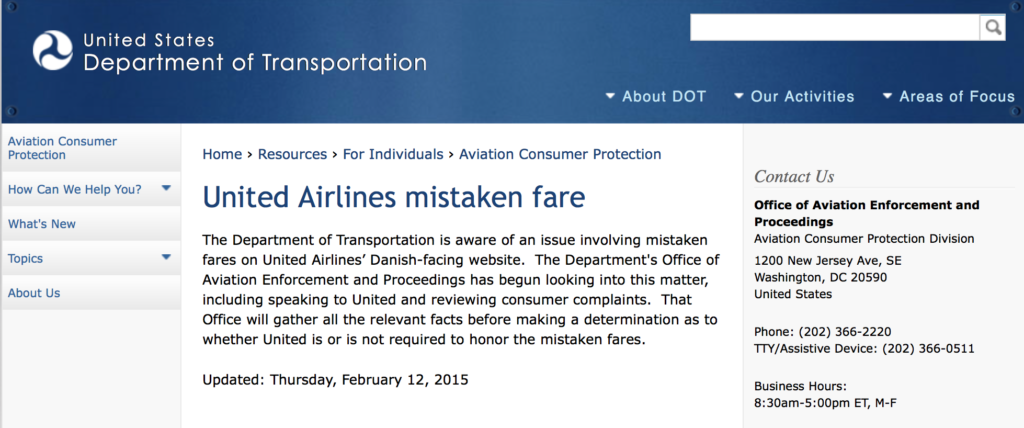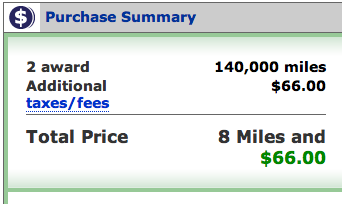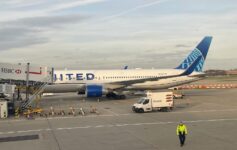The DOT has taken the unusual step of issuing a press release noting that it is examining the “United Airlines mistaken fare” and will determine whether or not United must honor the fares purchased. My gut tell me this game is already over and that consumers have lost.

I am a contract lawyer, but let’s keep things simple for now. We have the following rule against airfare post-purchase price increases, codified in 49 U.S.C. 41712 §399.88(a):
It is an unfair and deceptive practice within the meaning of 49 U.S.C. 41712 for any seller of scheduled air transportation within, to or from the United States, or of a tour (i.e., a combination of air transportation and ground or cruise accommodations), or tour component (e.g., a hotel stay) that includes scheduled air transportation within, to or from the United States, to increase the price of that air transportation, tour or tour component to a consumer, including but not limited to an increase in the price of the seat, an increase in the price for the carriage of passenger baggage, or an increase in an applicable fuel surcharge, after the air transportation has been purchased by the consumer, except in the case of an increase in a government-imposed tax or fee. A purchase is deemed to have occurred when the full amount agreed upon has been paid by the consumer.
We also have this specific mention of mistakes fares in a FAQ section of the DOT guidelines–
Does the prohibition on post-purchase price increases in section 399.88(a) apply in the situation where a carrier mistakenly offers an airfare due to a computer problem or human error and a consumer purchases the ticket at that fare before the carrier is able to fix the mistake?
Section 399.88(a) states that it is an unfair and deceptive practice for any seller of scheduled air transportation within, to, or from the United States, or of a tour or tour component that includes scheduled air transportation within, to, or from the United States, to increase the price of that air transportation to a consumer after the air transportation has been purchased by the consumer, except in the case of a government-imposed tax or fee and only if the passenger is advised of a possible increase before purchasing a ticket. A purchase occurs when the full amount agreed upon has been paid by the consumer. Therefore, if a consumer purchases a fare and that consumer receives confirmation (such as a confirmation email and/or the purchase appears on their credit card statement or online account summary) of their purchase, then the seller of air transportation cannot increase the price of that air transportation to that consumer, even when the fare is a “mistake.”
A contract of carriage provision that reserves the right to cancel such ticketed purchases or reserves the right to raise the fare cannot legalize the practice described above. The Enforcement Office would consider any contract of carriage provision that attempts to relieve a carrier of the prohibition against post-purchase price increase to be an unfair and deceptive practice in violation of 49 U.S.C. § 41712.
So based on a literal reading of the text, it seems clear that United has no choice but to honor these fares.
So why do I think the DOT will let United off?
 The 4-mile first class fare, for starters. Yes, we could distinguish the two cases in that in the 4-mile case, the correct amount showed until the final screen when it repriced to four miles per ticket. And yet under DOT rules “a purchase occurs when the full amount agreed upon has been paid by the consumer” and on that final page only four miles were showing. The DOT could have forced UA to honor the fare, but instead reasoned, “The evidence does not support a finding that United engaged in an unfair and deceptive practice in violation of the relevant statute.”
The 4-mile first class fare, for starters. Yes, we could distinguish the two cases in that in the 4-mile case, the correct amount showed until the final screen when it repriced to four miles per ticket. And yet under DOT rules “a purchase occurs when the full amount agreed upon has been paid by the consumer” and on that final page only four miles were showing. The DOT could have forced UA to honor the fare, but instead reasoned, “The evidence does not support a finding that United engaged in an unfair and deceptive practice in violation of the relevant statute.”
The DOT will find some way to let UA off the hook for this “mistaken” fare — and is in the process of revising the rules anyway to exclude deals like this. That is easier said than done, but I imagine a ruling that mentions that consumers had to manipulate united.com in order to book this fare (they cite the Danish website in the above press release) while perhaps leaving an opening for recourse for those with bonafide Danish billing addresses.
On a totally unrelated legal note, UA may skirt DOT law to go after customers who fraudulently chose a Denmark billing address even though their credit card was associated with a US address. It was not fraud to use the Danish site, but it was fraud (wrongful deception intended to result in financial or personal gain) to put a U.S. street number and city but Denmark as the country. Not judging here, just speaking from a legal perspective.
I expect the DOT to come down with the bad news on Tuesday (Monday is a holiday in the USA). For those waiting with baited breath, why not take a breather and try to enjoy this weekend? It will be a couple more days before we know what will happen, even if the writing is already on the wall.




No dog in the fight here, I didn’t buy any of these, but I viewed entering your country in the billing address as:
Not material to your purchase of the tickets. Fare rules weren’t SITO or SITI. The fare was available to anyone regardless of country of residence. You just had to leave your country as Denmark to prevent the website from going into a loop where it started over.
Overcoming a systems limitation. I think we can establish that United.com has significant defects and frequent errors. Their website just doesn’t work right. So entering the country was a means of overcoming these deficiencies.
Any thoughts on United’s cancelation notice? Their main argument seem to be, that the error was made by third party and it was currency exchange, they even highlighted the fare was filed properly. Almost saying this is not a mistake fare, therefore they can cancel the tickets. I was surprised that they barely mentioned the Danish site.
Also, does it make any difference that people didn’t select the country in the billing address, instead they didn’t change the default. I mean, clearly the country doesn’t have any influence in the credit card authorization.
I’d bet the answer will come Tuesday since Monday is a holiday. =)
Although that DOT language has typically been cited to support those who think mistake fares should be honored, I’m not so sure its as clear as it seems. As you probably know with contract law, when there is a unilateral mistake by one party to the contract and the other party knew or should have known that party was making a mistake, then the contract is rescinded and its treated as there was never any agreement in the first place. An agreement requires a meeting of the minds and when one party makes a mistake that’s exploited by the other party it’s hard to argue there was ever an agreement. This language: “A purchase is deemed to have occurred when the full amount agreed upon has been paid by the consumer.” would suggest that in the case of a unilateral mistake on UA’s behalf, no “purchase” ever occurred because there was never a valid agreement in the first place.
The only problem for UA would be demonstrating that the consumers “knew or should have known” that the price they were given was a mistake. With typical mistake fares where there is just a computer glitch (think DL in late 2013/early 2014), that would be harder to demonstrate and not really worth the trouble for UA (since the airline is by far the most sophisticated party and fares change all the time). The difference here, however, is that it would be very hard for most consumers to argue that they didn’t “know” UA was making a mistake given that they had to go to fairly convoluted lengths to get the mistake fares to price in their favor. It’s not like UA offered the tickets at the incorrect price, the fares were uploaded correctly and the consumers had to actively change to Danish Kronor to get the “mistake” fare. That would be like someone sending you a contract, you crossing out a term, and then arguing that the other party is bound by the new term in the amended contract. UA gets this and that’s probably why their legal team feels confident playing hardball in this case.